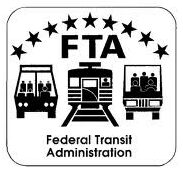

“Transit buses are a lifeline to opportunity for countless Americans, but too often these buses are outdated and unreliable,” said U.S. Transportation Secretary Anthony Foxx. “As demand for transit grows and our nation’s population continues to expand, these much-needed funds will help bring communities the latest technologies to strengthen and improve their bus infrastructure.”
Eligible projects include those that replace, rehabilitate, lease, and purchase buses and related equipment as well as projects to purchase, rehabilitate, construct or lease bus-related facilities, such as buildings for bus storage and maintenance.
“Our state and local partners across the country will benefit from the increased funding and flexibility available through this program,” said FTA Acting Administrator Therese McMillan. “With a large and growing maintenance backlog throughout the public transportation industry, it is vital for local agencies to have additional resources to address their community’s needs.”
FTA will award the grants to eligible transit agencies, state transportation departments, and Indian tribes on a competitive basis. Projects will be evaluated by criteria outlined in the Notice of Funding Opportunity, including the need for investment in bus transit systems, benefits to the community (including economic and workforce development), implementation of low and no-emission technologies, and integration with local and regional long-term planning.
Transportation contributes about 27 percent of U.S. greenhouse gas emissions, and the Administration has committed to major reductions in emissions. The FTA funds to help public transportation agencies purchase advanced technology, clean and efficient buses will help to reduce transportation emissions.
The Low-No Bus Program is a down payment on the administration’s 2017 budget proposal. Over a 10-year period, the “21st Century Clean Transportation Plan” invests an average of nearly $20 billion per year in new funds to reduce greenhouse gas emissions and provide new ways for families to get to work, to school, and to the store. The Budget would expand transit systems in cities, fast-growing suburbs, and rural areas; make high-speed rail a viable alternative to flying in major regional corridors; modernize our freight system; and expand the successful Transportation Investment Generating Economic Recovery (TIGER) program to support high-impact, innovative local projects.
The Fixing America’s Surface Transportation (FAST) Act, passed by Congress and signed into law by President Obama in December 2015, restored FTA’s competitive Bus & Bus Facilities Program, authorizing it through 2020. The FAST Act also made the Low-No program, previously funded and managed under FTA’s research programs, a subset of the larger competitive bus program.
The previous round of Low-No funding was announced in September 2015, and project selections are expected in the coming months.
Related News
- Senate Strikes Down Spending Bill’s Harmful AI Provision
- Razor blade found on brake wheel
- Coming Soon: SMART-TD Voluntary Income & Life Protection (VILP) Program
- Senate Passes Tax Bill Without Including Railroaders
- SMART-TD Honors the Retirement of Brother Greg Hynes: A Visionary, a Fighter, and a Legend
- SMART-TD Calls on U.S. Senate to Support the Cantwell Amendment and Protect Rail Workers
- Yardmaster Protection Act Introduced
- PHOTO GALLERY: 2025 Denver Regional Training Seminar
- Fighting for Stronger Heat Protections for Rail Workers
- Regional Training Seminar Sets (Mile-High) Record in Denver